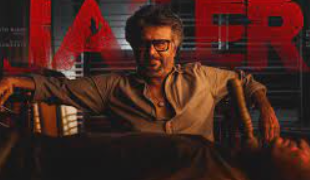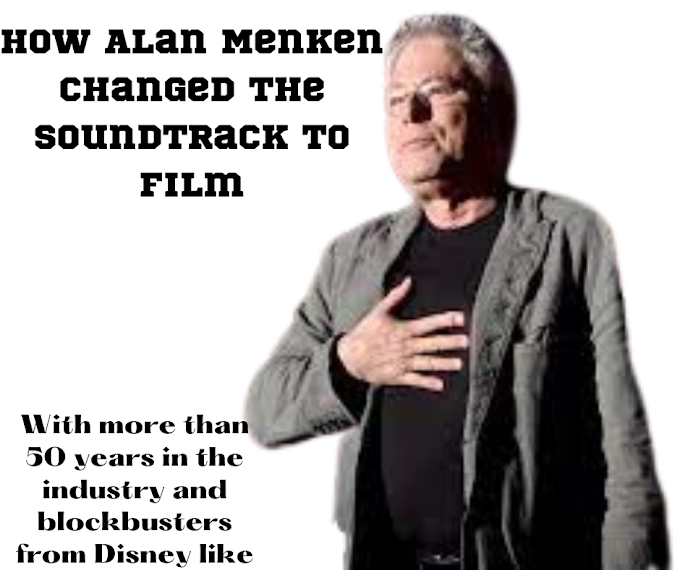How Alan Menken Changed the Soundtrack to Film
How Alan Menken Transformed Movie Music
Although giants like Leigh Harline, Frank Churchill, and Paul J. Smith contributed memorable scores and song melodies to Disney classics from Snow White and Pinocchio to 20,000 Leagues Under the Sea, Walt Disney never quite had a "court composer" for his films. The music in Walt Disney films, as well as the films themselves, have been reinvented throughout the past three decades to recover and rebrand the musical, a form that was once believed to be extinct in cinema and even on the Broadway stage. And if anyone is to blame for this rebirth, it has to be Alan Menken.
Although Menken's career now includes an EGOT-worthy collection of gold awards, including eight Oscars, eleven Grammys, two Emmys, and a Tony Award, it all began with a partnership on an underappreciated Disney animated film.
The Little Mermaid, a Disney animated film, was being produced in the year 1988. Based loosely on the same-named fairy tale by Hans Christian Andersen, the film would not only establish Menken as one of the industry's most versatile composers, but its success would also eventually spark a renaissance for Disney Animation, turning the once-struggling division into the powerhouse it is today and opening the door for blockbusters like the Frozen franchise.
But if Menken hadn't crossed paths with lyricist Howard Ashman, none of this might have occurred. God Bless You, Mr. Rosewater, a Kurt Vonnegut play on which they initially collaborated in New York in 1979, was their first project together. With Little Shop of Horrors on Broadway in the early 1980s, they had a considerably wider impact. Looking back, Menken claims that in the motivated, theatrically astute Ashman, he had discovered a natural collaborator.
Which musical theatre genres did Alan Menken influence?
Along with his lyricist/co-writer Howard Ashman, Menken wrote songs that, in the best theatrical tradition, progress the plot and give listeners a better understanding of the people they feature.
They might include one or two songs, but the emphasis was on comedy and adventure rather than musical performances. Little Mermaid brought Ashman and Menken together nearly by chance. When their musical parody of a Bob Hope/Bing Crosby adventure, Aladdin, failed to take off, they approached the studio about contributing music to Mermaid. According to Schumacher, "They stepped in the door with Aladdin as a concept." The Little Mermaid was already playing when they made the switch.
Mattel, Disney's toy partner, had all but abandoned the project because they believed a redheaded mermaid wouldn't be a big seller of items. According to Paige O'Hara, who would later play Belle in Beauty and the Beast, "A lot of people don't realise that getting Little Mermaid done was absolute guts from Alan and Howard, imploring Disney to do it." "By pleading with them, doing all the work themselves, and even contributing some of their own money," you mean.
Andy Hill, who was at the time Disney's new manager of music production, says, "Disney did not trust Alan to actually write the score." "OK, he's fine as a songwriter, but what does he truly know about this? they reasoned.
.png) |
| Alan Menken |
Disney ultimately agreed to let Menken audition with an orchestra for a three-hour period. According to Hill, they told him, "We want you to record something that has nothing to do with any of the songs, because that's cheating. "'Write an action piece of music or something like.' This significant storm scene, which appears early in the movie, was chosen for him to soundtrack. Even after getting a good take, he remained anxious and unsure of how Disney would respond. What do you think, Andy? he asked. Do you believe I was hired? Then I said, "Alan, I think you've got the job and I think you're going to win an Oscar." He also did.
The songs "Part of Your World" and "Under the Sea" by Menken and Ashman made the movie a roaring audience favourite and Disney's first massive smash in years. According to animation director Gary Trousdale, "Howard and Alan really breaking out the Broadway [sound] — that's I think what really turned the corner on [Disney films] being labelled as musicals or musical animation."
Disney changed its plans for their Beauty and the Beast project as a result of The Little Mermaid's success, moving away from a stuffy Masterpiece Theatre interpretation of the traditional tale and toward something much more in line with Mermaid. The ensuing film, which Trousdale and Kirk Wise co-directed, received a best picture nomination and went on to become another commercial and critical success. The Beast was portrayed by Broadway veteran Robby Benson. Benson declares, "The music is really wonderful." "I genuinely admire Alan and Howard. Everything had to serve a function, and just like in a Broadway production, the music aids in telling the tale. They did that flawlessly, song after song.
The songs "Part of Your World" and "Under the Sea" by Menken and Ashman made the movie a roaring audience favourite and Disney's first massive smash in years. According to animation director Gary Trousdale, "Howard and Alan really breaking out the Broadway [sound] — that's I think what really turned the corner on [Disney films] being labelled as musicals or musical animation."
Disney changed its plans for their Beauty and the Beast project as a result of The Little Mermaid's success, moving away from a stuffy Masterpiece Theatre interpretation of the traditional tale and toward something much more in line with Mermaid. The ensuing film, which Trousdale and Kirk Wise co-directed, received a best picture nomination and went on to become another commercial and critical success. The Beast was portrayed by Broadway veteran Robby Benson. Benson declares, "The music is really wonderful." "I genuinely admire Alan and Howard. Everything had to serve a function, and just like in a Broadway production, the music aids in telling the tale. They did that flawlessly, song after song.
With "Colors of the Wind," the technique for Alan and me "developed quite instantly," says Schwartz. "Almost all of our work has been organised as follows: assignment, title, music, and lyrics. Together, we talk about "the assignment," as Alan calls it: what is the song's role in the story we're attempting to tell? Then I make an effort to come up with a title for the song because that gives Alan and I useful guidelines for arranging it. I will occasionally give him a rough sketch of the lyrics. Through "Colors of "the Wind" I believe my opening line was, "You say I'm an ignorant savage." But it was merely a starting point. Then Alan writes music. He occasionally does this when I'm in the same room with him, and other times he does it on his own at three in the morning. I just take the music and go off on my own, sitting at my piano and practising it endlessly until I can create lyrics to it.
.png) |
| Alan Menken |
As he completes the live-action adaptation of Mermaid for Marshall, Menken feels as though his career is coming full circle. Marshall is aware that Menken is essential to the project's existence and that Menken's success has had an impact on his own career.
The late great Howard Ashman and Alan are to be credited, according to Marshall, for significantly assisting in the revival of the movie musical. "The cinema musical genre was essentially nonexistent in 1989. Figures were suddenly allowed to sing again with the release of The Little Mermaid, although as animated characters. In a sense, I think that his 1990s animated cinematic musicals helped pave the way for live-action musicals like my own movie Chicago. I feel like it was fate that we were supposed to collaborate on this live-action remake of The Little Mermaid because of this relationship.
Looking back, Menken attributes one fundamental quality—versatility—that it seems like all successful film composers cite as the secret to their achievements in the very competitive industry of film composition.
Menken claims that being somewhat chameleonic is one of his talents. "As I collaborated with Howard Ashman, I realised that even if I work entirely in a well-known genre, it can nevertheless emerge uniquely original when it passes through my personal toolkit as a composer. And so, starting with Little Shop of Horrors and continuing with Mermaid, I've been using very specific musical genres in my work ever since.
Looking back, Menken attributes one fundamental quality—versatility—that it seems like all successful film composers cite as the secret to their achievements in the very competitive industry of film composition.
Menken claims that being somewhat chameleonic is one of his talents. "As I collaborated with Howard Ashman, I realised that even if I work entirely in a well-known genre, it can nevertheless emerge uniquely original when it passes through my personal toolkit as a composer. And so, starting with Little Shop of Horrors and continuing with Mermaid, I've been using very specific musical genres in my work ever since.
FAQ
Alan Menken



.png)









.png)
![Fast X': New Cast, Trailer, Release Date, and Everything We Know So Far [ Hindi Review ]](https://blogger.googleusercontent.com/img/b/R29vZ2xl/AVvXsEga6TASlDbTbPk73WJxjmg3n0djBZK5XnM1GMqNFc0fEKb3eVFYWXeDMmYqaE3876ErLbYaeJq0BlRtUcN6t7P_ZwmFZfqAwHxGzUtkmjLNIh3_eMgA3m2mZ7K35PxvYAngDJYTadmstYAimTpy_3woz6QDoyemG_EgPRcl6CBfePfORYUgR7fuN53m_A/w680/Add%20a%20heading%20(1).png)
0 Comments